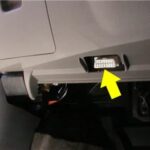The automotive world is increasingly focused on emissions, and diesel vehicles, like the Sprinter van, are under particular scrutiny. The original forum post raises valid concerns about the ethics and legality of diesel emission system modifications, especially those involving bypassing the Diesel Exhaust Fluid (DEF) system via the OBD2 port. Let’s delve deeper into the complexities surrounding “Def Bypass Obd2 Sprinter” and what it truly means for vehicle owners and the environment.
The Diesel Emission Control Dilemma
Modern diesel vehicles, including the Mercedes-Benz Sprinter, are equipped with sophisticated emission control systems to minimize harmful pollutants. These systems often include DEF, which is crucial for reducing NOx emissions. However, these systems can be complex and, when malfunctions occur, expensive to repair. This cost factor often leads some owners to consider emission “deletes” or bypasses, sometimes marketed for “off-road use only.”
The forum post author highlights the apparent hypocrisy of this “off-road” loophole. The argument is straightforward: pollution is pollution, regardless of location. The environmental impact of bypassing emission controls in a forest is still detrimental, even if it’s less visible than in an urban setting. This raises a critical ethical question: is it justifiable to prioritize personal cost savings or perceived performance gains at the expense of environmental and public health?
Regulatory Scrutiny and Enforcement
As the original post mentions, authorities are increasingly cracking down on emission defeat devices. The Environmental Protection Agency (EPA) in the United States, and similar bodies globally, are taking a firmer stance against tuners and individuals who tamper with emission systems. The days of easily available “delete tunes” are dwindling as regulatory pressure mounts.
The example of the horse transporter stranded due to emission system issues after a delete attempt underscores the practical problems. Not only are these modifications often illegal for on-road use, but they can also lead to significant vehicle malfunctions. Furthermore, as the post indicates, dealerships and even independent repair shops may refuse to work on vehicles with tampered emission systems, leaving owners in a difficult position.
Colorado’s fines for “coal rolling” and the anticipated advancements in emission testing to detect active tunes are clear indicators of stricter enforcement. These developments suggest that the risks associated with DEF bypass and similar modifications are escalating, both legally and financially.
Why the Temptation of DEF Bypass?
Despite the growing risks, the temptation to bypass the DEF system in a Sprinter or other diesel vehicle persists. The primary drivers are often cost and convenience. DEF system components, such as sensors, injectors, and pumps, can fail, leading to hefty repair bills. Bypassing the system can seem like a cheaper and simpler solution in the short term.
For some, the perceived performance benefits of deleting emission controls also play a role. However, these gains are often marginal and come with significant drawbacks. Moreover, the long-term consequences, including potential engine damage and reduced vehicle lifespan, are often overlooked in the pursuit of short-term gains.
The Bigger Picture: Public Health and Responsibility
The original post rightly broadens the discussion to public health. Diesel emissions, particularly NOx and particulate matter, are known respiratory irritants and contribute to air pollution, especially in urban areas. Children, the elderly, and individuals with respiratory conditions are particularly vulnerable.
Therefore, the decision to bypass emission controls is not just a personal one; it has broader societal implications. While the initial cost savings might be appealing, the long-term costs to public health and the environment are far greater. Furthermore, the increasing sophistication of emission testing and stricter enforcement make “DEF bypass OBD2 Sprinter” modifications a risky and ultimately unsustainable practice.
In conclusion, while the desire to avoid costly repairs is understandable, bypassing the DEF system on a Sprinter or any diesel vehicle is a decision fraught with legal, ethical, and environmental consequences. As regulations tighten and public awareness of air quality issues grows, responsible vehicle ownership necessitates maintaining, not defeating, emission control systems.
